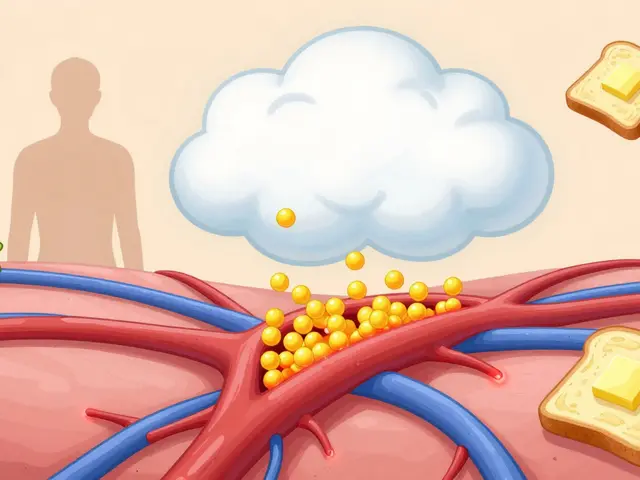Meteorism (Bloating): Causes, Quick Relief & When to See a Doctor
Ever felt uncomfortably full, gassy, or like your belly is a balloon? That’s meteorism — the medical word for excess gas and visible abdominal swelling. It can arrive after a large meal, slowly build over a day, or become a regular problem. Good news: most cases are harmless and treatable at home.
Common causes are easy to miss. You may swallow extra air when you eat fast, chew gum or drink through a straw. Foods like beans, broccoli, onions, and dairy often trigger gas. Digestive issues such as lactose intolerance, fructose malabsorption, irritable bowel syndrome (IBS), small intestinal bacterial overgrowth (SIBO), and constipation are frequent culprits. Some medicines and stress can also make meteorism worse.
Quick relief steps you can try right now
Start with simple moves. Take a short walk after eating to help gas move. Avoid carbonated drinks, chewing gum, and smoking. Eat smaller, slower meals and chew thoroughly. Try over-the-counter simethicone (gas drops) or activated charcoal for short-term relief. Peppermint tea or enteric‑coated peppermint oil capsules can relax gut muscles and reduce bloating for some people.
Adjust your diet for a few days. Cut back on high-FODMAP foods (certain fruits, wheat, dairy, garlic, and beans) to see if symptoms improve. Swap cow’s milk for lactose-free options if dairy bothers you. Consider a short trial of probiotics—choose products with Lactobacillus or Bifidobacterium strains—and track whether gas and bloating drop.
Home tactics also help: a warm heating pad, gentle clockwise belly massage, and a scheduled bathroom routine to relieve constipation. If you notice predictable triggers, keep a food-and-symptom log for two weeks. That record helps you and your doctor spot patterns fast.
When to see a doctor
Most bloating isn’t urgent, but seek care if you have severe belly pain, unexplained weight loss, ongoing vomiting, blood in stool, fever, or bloating that lasts more than two weeks despite changes. Your doctor may order tests like blood work, stool tests, an abdominal ultrasound, or breath tests for SIBO and lactose intolerance. For persistent cases, imaging or endoscopy can rule out obstructive problems.
Bring a medication list and your symptom log to the appointment. Some prescriptions and supplements cause bloating, so a quick review could reveal the cause. Treatment may be as simple as changing a medicine, starting a targeted diet, or using prescription drugs for conditions like SIBO or IBS.
Try the practical fixes above for a week and note changes. If you still feel like a balloon or you spot any warning signs, contact your GP. Small steps often give big relief, and a doctor can help if home care isn’t enough.
If over-the-counter measures fail after two weeks, ask about a guided low‑FODMAP plan with a dietitian, testing for food intolerances, or a short antibiotic course for SIBO if confirmed. Also ask about medication side effects — switching to a different drug sometimes fixes bloating without other treatments. Keep communication open, and contact your provider promptly if symptoms change.
As a blogger, I recently came across the topic of meteorism and its connection to medications. Meteorism, or excessive gas in the digestive system, can be a painful and embarrassing issue for many individuals. I discovered that certain medications, such as antibiotics and pain relievers, can actually contribute to this problem. However, it's important to know that alternatives do exist, such as probiotics and natural remedies, which can help mitigate the effects of meteorism. I encourage my readers to explore these alternatives and discuss them with their healthcare providers to find the best solution for their needs.
View Details

